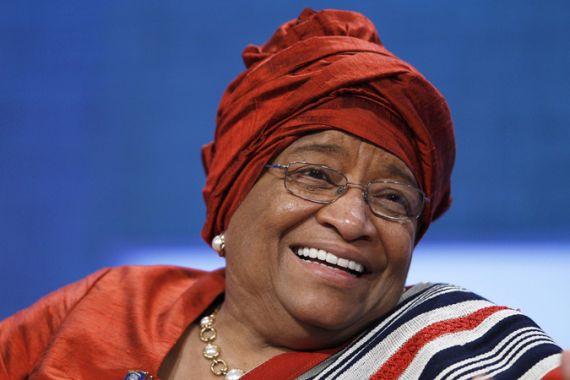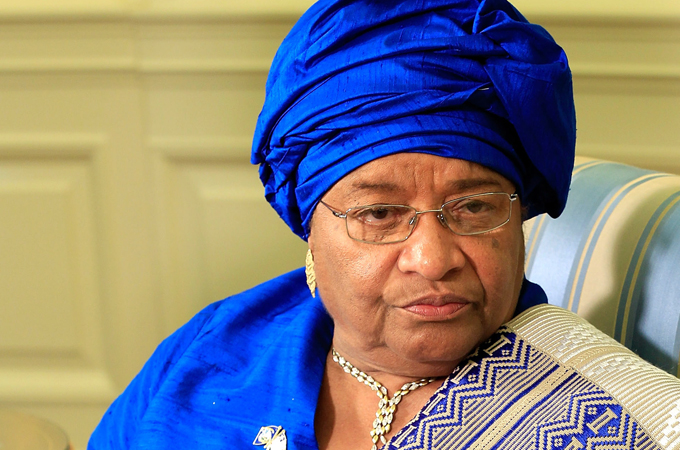Profile: Ellen Johnson-Sirleaf
Africa’s first elected female president wins the Nobel Peace Prize in time for a boost in her re-election campaign.

 |
| The Liberian president’s new status as a Nobel laureate could help regain her declining popularity at home [EPA] |
Liberian president Ellen Johnson-Sirleaf has emerged as a champion of women’s rights after jointly winning the 2011 Nobel Peace Prize with two other women – fellow Liberian Leymah Gbowee and Yemen’s Tawakkul Karman.
Johnson-Sirleaf, the 72-year-old who became Africa’s first elected female president in 2005, is running for re-election in next week’s polls, and her new status as a Nobel laureate is expected to give her a much-needed boost against the growing unpopularity she faces at home.
The prize committee cited Johnson-Sirleaf’s efforts to secure peace in her country, promote economic and social development and strengthen the position of women.
The Harvard-trained economist has earned international praise for charming financial institutions to write off billions of dollars in debt and ushering in investors to her country, which is traumatised by 14 years of brutal civil war with no electricity, running water or infrastructure.
Sirleaf served as finance minister under presidents William Tolbert then William Tubman, before spending decades shuttling in and out of exile. She has also worked for the World Bank.
“We still have a long way to go, but we have succeeded in restoring a good amount of basic infrastructure,” she recently told the Jeune Afrique magazine.
Liberia, Africa’s oldest independent state, was ravaged by civil wars for years until 2003 and is still struggling to maintain a fragile peace with the help of United Nations peacekeepers.
Unpopular at home
Johnson-Sirleaf was seen as a reformer and peacemaker when she took office, but a string of corruption scandals, lack of national reconciliation efforts and perceived broken promises have seen attitudes cool towards her at home.
Unemployment is still at about 80 per cent and extreme poverty pervasive. Half the roads around Monrovia have been rebuilt and the capital now has running water.
Once non-existent, some parts of the capital now have access to electricity but the supply is haphazard.
Opponents in the presidential campaign are accusing Johnson-Sirleaf of buying votes and using government funds to campaign. Her camp denies the charges.
She has so far ignored a 2009 report by the country’s Truth and Reconciliation Commission, which named her on a list of people who should not hold public office for 30 years for backing warlord-turned-president Charles Taylor.
Johnson-Sirleaf has admitted to initially backing Taylor’s insurgency against military dictator Samuel Doe’s government in 1989, which led to the country’s first civil war, but said she became a fierce opponent as the true extent of his war crimes became apparent.
Johnson-Sirleaf married at age 17, and later divorced after the relationship turned abusive. She has since devoted herself to fighting gender violence.
Johnson-Sirleaf, who is noted by her trademark style of flowing robes and headdresses, has four sons and eight grandchildren.